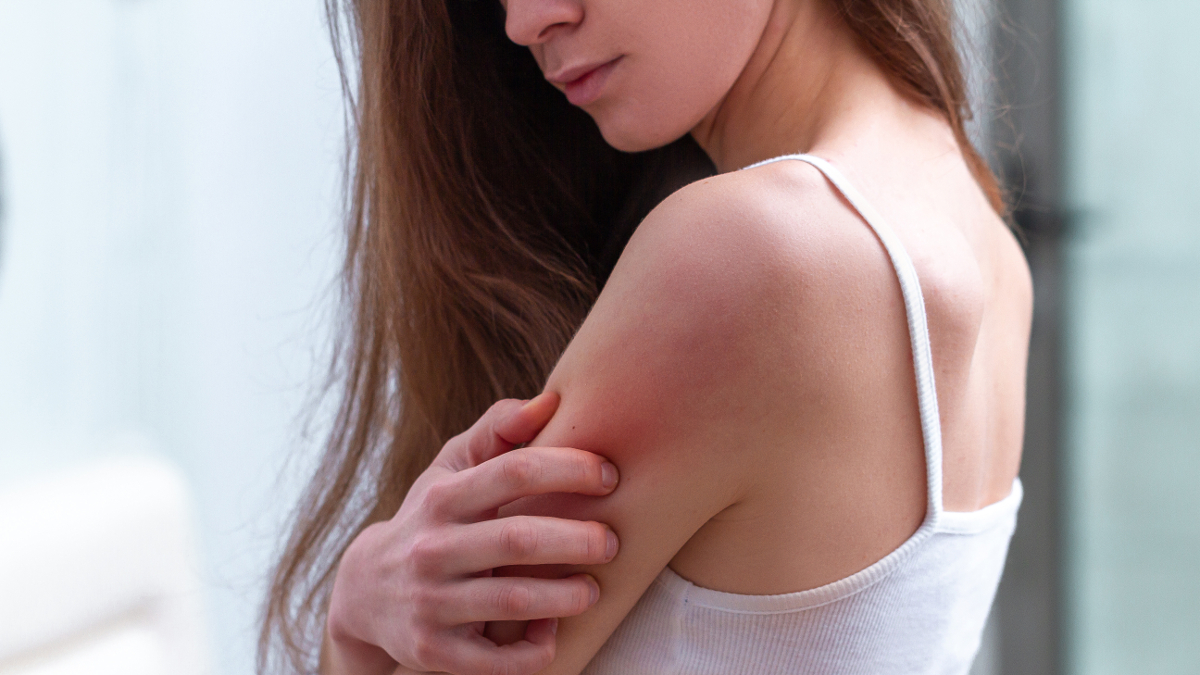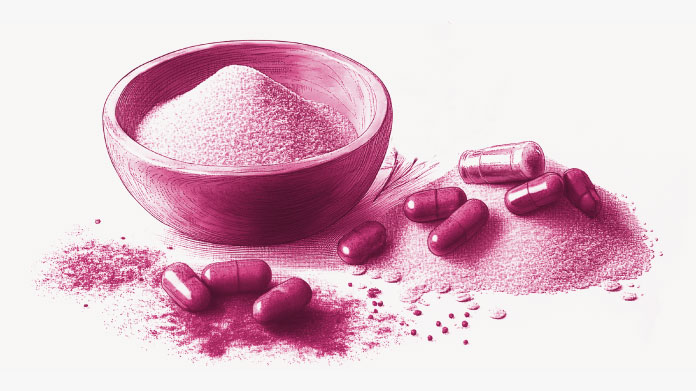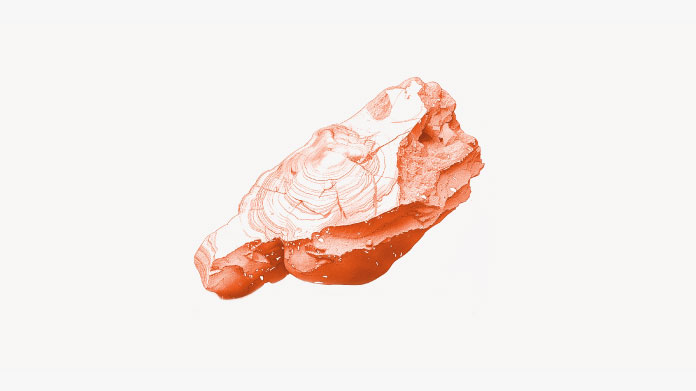Atopic dermatitis: how to relieve and treat this inflammatory condition
The skin disease atopic dermatitis, also known as atopic eczema, can be very difficult to live with. What causes this inflammatory condition and what are the best ways of relieving and getting rid of it?

Definition
Atopic dermatitis is a chronic inflammatory skin disease.
It is characterised by skin dryness, associated with various eczematous patches (such as redness and itching).
Symptoms of atopic dermatitis
Dry skin, red patches, itching...
Atopic eczema usually gives rise to:- dry skin (xerosis);
- slightly swollen ‘erythematous’ red patches which fade when pressed, usually found on the cheeks, arms, legs and buttocks in babies, and on the face, neck, and creases of the elbows and knees in children and adults;
- intense itching (pruritus);
- and potentially prurigo - extremely itchy red papules.
These various symptoms occur and develop in successive outbreaks.
Weeping and thickening of the skin
In addition, the tiny blisters present in the red patches end up bursting, causing weeping, crusting and desquamation – shedding of the outer layers of the skin.
The constant scratching, which causes multiple small breaks in the skin, can also result in abnormal thickening of the skin, referred to as lichenification.
Problems indirectly associated with this skin disease
What’s more, the inherent discomfort of this form of dermatitis (the generic name for all skin diseases) can:
- lead to sleep problems;
- increase anxiety and/or irritability;
- and in some cases, even result in depression.
Let us know look at why this condition develops.
What causes this inflammatory skin disease?
Genetic predisposition to dry skin
Atopic dermatitis primarily stems from a genetic abnormality of the skin barrier.
This abnormality causes excessive dryness of the skin: a defect in the filaggrin gene, breakdown of lipids… One of the key genetic mutations responsible may be situated on chromosome 1q21 (1).
Allergic disposition
This disease also affects those who are hypersensitive to allergens, such as certain foods, pollen, animal fur, etc.
That’s why it’s called ‘atopic’, atopy being the term for a predisposition to multiple allergies.
Changes in the skin make it easier for these allergens to penetrate the epidermis...
… which stimulates the immune system causing it to over-react and produce excessive amounts of Immunoglobulin E (IgE), which triggers the itching and redness of eczema.
Environmental factors too
Atopic dermatitis is also stimulated by environmental/lifestyle factors such as:
- excessive washing which strips the skin of its natural protection and makes it more vulnerable to attack by allergens;
- a dry atmosphere;
- poor ventilation in the home which can result in the spread of house dust mites;
- rough fabrics;
- heat and perspiration;
- exposure to pollution;
- and stress, which is an aggravating factor in eczema.
Individuals most at risk
Babies and children
Babies (from the age of three months) and children are most affected by this skin disease. An estimated 10% to 15 % of babies in France are thought to suffer; this is sometimes referred to as infant eczema.
The good news is that three out of four children will see their eczema diminish before outgrowing it altogether by the time they reach adolescence (2).
Approximately 10% of adults are affected
It can, however, persist into, or even develop during adolescence or adulthood.
It’s estimated that 10% of adults suffer from the disease (3).
Incidence, contagion, and complications
An increasingly widespread disease
Atopic dermatitis is very common and incidence has been growing steadily in industrialised societies since the 1960s.
This increase is thought to be linked to the factors mentioned above (over-washing, pollution, stress...)
Is atopic dermatitis contagious?
No. It is a hereditary disease but not a contagious one.
Possible complications
The lesions caused by atopic dermatitis are a potential entry point for staphylococcus aureus or the herpes virus.
In some cases, dermatitis may be associated with stunted growth or with eye problems such as retinal detachment.
Diagnosis
Who should you consult about atopic eczema and when?
Any inflammation of the skin needs to be investigated by a dermatologist.
He or she will be able to confirm whether it is indeed atopic dermatitis (or another inflammatory skin disorder) and prescribe the right treatment.
How does the dermatologist identify atopic dermatitis?
This skin disease has very specific markers.
To determine if a patient has this disorder, the dermatologist needs to:
- confirm the presence of eczema and itching;
- and at least three other distinct criteria, such as a personal history of skin xerosis, asthma, and eczema in skin creases, etc.
Possible allergy test
It’s important too that this disorder is not confused with seborrheic dermatitis or contact eczema.
If a baby or child responds poorly to treatment, and if they have another atopic problem (such as rhinitis or a food allergy …), it may be necessary to carry out allergy testing.
Treating atopic eczema
Daily preventive measures
To prevent symptoms, the general advice is to:
- avoid using detergent soaps and instead choose a gentler product such as a hypoallergenic cleansing bar or liquid gel;
- take showers rather than baths;
- pat your skin dry with a towel rather than rubbing it;
- ‘grease’ your skin every day using an emollient (a neutral hydrating cream with no perfume or preservative) in order to restore your skin’s barrier function. It’s best to apply it straight after a shower when the skin is still moist;
- wear cotton or linen rather than wool;
- avoid certain cosmetics;
- don’t smoke;
- lower the temperature in your home (to ideally no more than 20°C);
- practise anti-stress techniques, such as yoga and massage....
Atopic skin: how to deal with flare-ups
To control and relieve skin eruptions during flare-ups, dermatologists and GPs variously recommend the use of:
- cortisone creams (also known as dermocorticoids or topical glucocorticosteroids) with anti-inflammatory and anti-proliferative effects;
- immunomodulators which stimulate the immune system, though this option is counter-intuitive and risky, and thus controversial;
- antihistamines which reduce the effects of the histamine released by the body during allergic reactions;
- and sometimes antibiotics when breaks in the skin become infected.
Which natural treatments can help relieve this disorder?
Essential fatty acids
Essential fatty acids, such as omega 3, are scientifically-recognized for their ability to reduce anti-inflammatory reactions. They actually prevent the body from producing too many of the pro-inflammatory cytokines called interleukin 1 and 6.
A study conducted at the University of Berlin showed that taking omega-3 fatty acids was effective at providing relief to eczema sufferers – and was a totally natural option too (4).
Essential fatty acids can be obtained from:
- dietary supplements containing omega-3;
- oily fish - fresh and frozen;
- linseed oil, borage oil, rapeseed oil or hemp oil;
- nuts such as walnuts, etc.
Where can you find optimal amounts of omega-3?
Beware! Ordinary foods do not contain high enough levels of omega-3 fatty acids. And eating too much fish may be bad for your health (because of its high mercury content, linked to pollution).
Therefore, the most effective way to ensure you’re getting the benefits of a consistent intake of omega-3 is to take a course of supplements, such as Arctic Plankton Oil. This formulation combines the omega-3 fatty acids EPA, DHA and SDA, sourced from zooplankton, which have been shown to be highly effective at relieving inflammation.
Super Omega 3, as its name suggests, is also rich in omega-3 and can thus provide long-lasting relief from chronic inflammation.
And last but not least, zinc and vitamin D
Other nutrients can also help restore the health of your skin:
- zinc (Zinc Orotate 50 mg), the powerful antioxidant effects of which boost oxidation-sensitive skin cells (5) ;
- and vitamin D (Vitamin D3 5000 UI), which plays a key role in modulating the immune system. A recent study confirmed its efficacy in improving atopic dermatitis (6).
Your allies against atopic dermatitis: probiotics
Your intestinal ecosystem affects the condition of your skin
We know that:
an imbalance in gut microbiota can cause problems in other parts of the body such as the skin, by causing uncontrolled inflammation (7).
That’s why certain probiotics - the beneficial bacteria that support healthy gut flora function - have been found to be extremely helpful in strengthening the skin.
The presence of certain probiotic strains promotes the secretion of immunoglobulin A, which is known to strengthen barriers and mucous membranes. One American study showed that taking probiotics produced a significant improvement in eczema-affected skin (8).
Probiotics to support atopic skin
There are even probiotic-based products specifically formulated to target skin problems (acne, eczema, redness … and atopic dermatitis). One such product is Derma Relief which combines four different strains of probiotic: Lactobacillus casei, Lactobacillus rhamnosus, Lactobacillus plantarum and Bifidobacterium lactis.
These are double-coated so that they reach the gut intact and are thus able to deliver all their active principles, in synergy with the vitamins (C and B2) also included in this product, chosen for their ability to maintain and regenerate the skin.
References
- Cookson WO, Ubhi B, Lawrence R, et als Genetic linkage of childhood atopic dermatitis to psoriasis susceptibility loci [archive], Nat Genet, 2001;27:372-373.
- Bieber T, Atopic Dermatitis [archive], N eng J Med, 2008;358:1483-1494.
- Ellis CN, Mancini AJ, Paller AS, Simpson EL, Eichenfield LF. Understanding and managing atopic dermatitis in adult patients. Semin Cutan Med Surg. 2012 Sep;31(3 Suppl):S18-22.
- C. Koch, S. Dölle, M. Metzger, C. Rasche, H. Jungclas, R. Rühl, H. Renz, M. Worm, "Docosahexaenoic acid (DHA) supplementation in atopic eczema: a randomized, double-blind, controlled trial", British Journal of Dermatology Volume 158, Issue 4, Page 786-792.
- Hair zinc levels and the efficacy of oral zinc supplementation in patient with atopic dermatitis. Kim Je Acta Derm Venerol 2014 Sep;94(5):558
- New insights into the impact of the intestinal microbiota on health and disease: a symposium report, Thomas LV Br J Nutr. 2012 Jan;107Suppl 1:S1-13.
- Efficacy of probiotics in the treatment of pediatric atopic dermatitis: a meta-analysis of randomized controlled trials Michail SK1, Ann AllergyAsthmaImmunol. 2008 Nov;101(5):508-16.
4 Days
Easy to navigate site
Easy to navigate site, had what I was searching for, good price. easy order-check out
James Tucker
10 Days
My skin is clearing up nicely!
Pretty good for my skin so far.
Christian
12 Days
The new packaging is excellent
The new packaging is excellent - finally! No more squashed boxes and torn envelopes.
GORAN
13 Days
Great Product
Great Product
Larry Garrett
18 Days
Quick shipping
Quick shipping; good price. No issues!
Mary McCarty
19 Days
Thr product is very good and is helping…
Thr product is very good and is helping me on my health. Then is always on time
LUGO Luz
22 Days
Buying was fine
Buying was fine. I had problems with the website not recognizing my login info, and had to call to get it fixed. Other than that, everything was good.
David S. Clark
22 Days
Your super maca and super ginseng are…phenomenal
Your super maca and super ginseng are phenomenal supplements that compliment each other when taking them together. Fantastic feeling of well-being and lots of mid day energy without the crash.
Keith Mason
25 Days
I have had amazing results with every…
I have had amazing results with every supplement I've purchased. I am extremely satisfied with this company
kirstin Torres
25 Days
Fine products
Fine products . They are on the leading edge of online supplements. The only issue -so far-is they sometime run out of subscription items.
Jason Argos
27 Days
The ordering process is very user…
The ordering process is very user friendly and the products always come in a timely manner.
CARTER Rhonda
28 Days
The price for Dr
The price for Dr. Pero's AC-11 is reasonable and in line with his views. (my former colleague). Keep it pure.
CAMPBELL Clayton
31 Days
Right on every time.
Right on every time.
Arthur Nicholas
34 Days
They are cheaper than everyone else and…
They are cheaper than everyone else and the shipping was fast. Great company.
Patricia Adams
41 Days
Availability of quality health…
Availability of quality health supplements and it's wide variety is impressive. Ordering is seamless and shipping even during the holidays is well streamlined.
Mohamad Hussein




